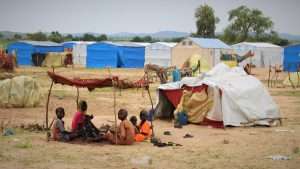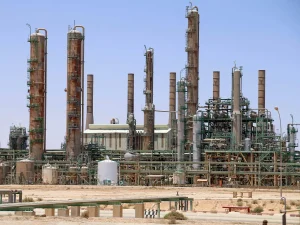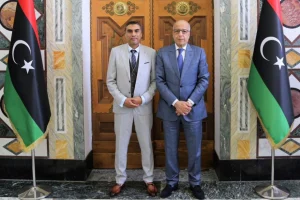Analysis: China and post-coup Niger
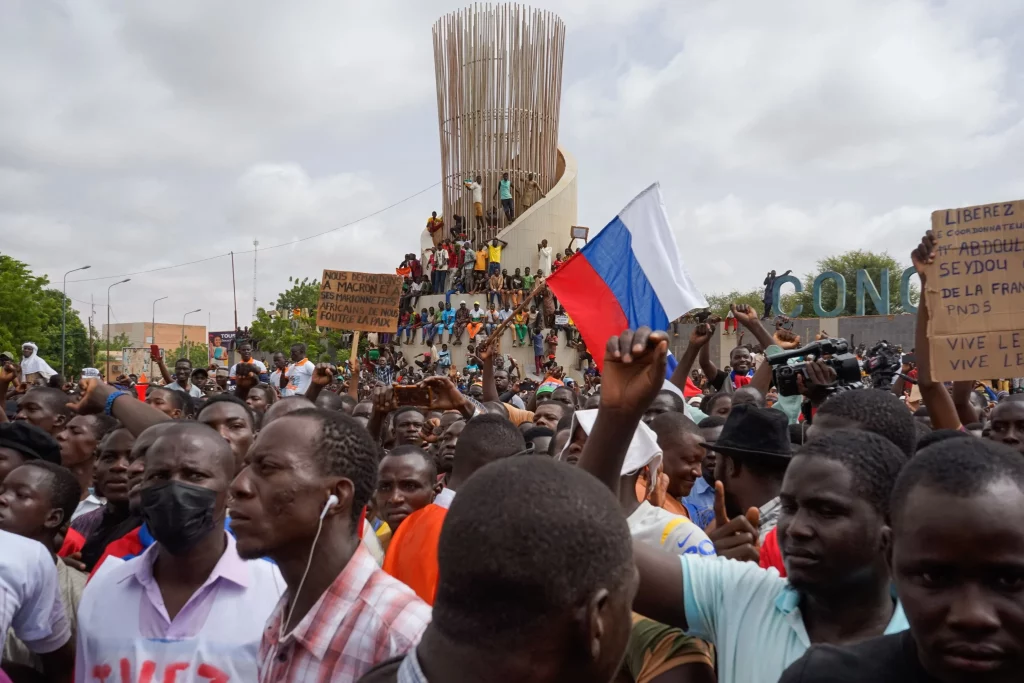
Initially China was a foe of the new regime installed in Niger, but it soon changed its position once it saw how ECOWAS and the West ran out of empty threats. Emily Milliken and Giorgio Cafiero examine Niger now with China as a potential key partner and what role the Wagner group could play once the dust settles
Niger’s President Mohamed Bazoum fell on July 26 amid his country’s fifth coup since gaining independence in 1960. In the aftermath of Bazoum’s ouster, there has been much volatility in Niger with some analysts warning of the risks of a wider conflict breaking out and involving the landlocked country’s neighbors. Countries around the world that have interests in the Sahel/West Africa have been closely monitoring Niger’s post-coup situation and China is no exception.
Mindful of how much Beijing has at stake in Niger and the rest of the Sahel/West Africa, particularly within the context of the Belt and Road Initiative (BRI), Chinese policymakers are understandably concerned about worsening volatility and terrorism crises in this upcoming period. Yet, the Chinese will probably remain active in Niger while seeking to capitalize on anti-French sentiments among the local population. Nonetheless, it is extremely unlikely that the Asian giant would intervene militarily.
Beijing’s Main Interests in Post-Coup Niger
China’s economic and security considerations mostly drive Beijing’s foreign policy vis-à-vis Niger. China has invested massively since the 2000s, giving Beijing high stakes in Niger becoming stabilized one way or another.
PetroChina, which is Asia’s largest oil and gas producer and distributor, has invested billions in major Nigerien oil refineries, explored oil fields, and essentially built up Niger’s oil industry by itself. The Chinese company was able to step into the Sahel after western companies began considering the region too risky for investment due to the rise of many terrorist groups in the area who contributed to regional security crises. PetroChina currently owns roughly two-thirds of the Agadem oil field, located in southeastern Niger.
READ: Niger accepts Algeria’s mediation initiative
In 2019, Nigerien and Chinese workers began working on a China National Petroleum Corporation (CNPC) project to construct the largest oil pipeline in Africa (below), connecting Agadem to Benin’s port of Seme, situated on the Gulf of Guinea. Work on the “Beninese corridor” was supposed to be finished in 2022, but the COVID-19 pandemic caused delays. Nonetheless, once complete, this pipeline “will plug into the Chinese supply chain from the Atlantic down to China,” said Paul Nantulya, a research associate at the Africa Center for Strategic Studies at the National Defense University, in an interview with Maghrebi. “Once that is in place…it will increase Niger’s oil output by about 400%. That’s a major investment that China has sunk into that country.”
“In line with China’s “non-interference” foreign policy doctrine, Beijing, unlike western capitals, will not have issues supporting a government that came to power through a military coup”
Alessandro Arduino, an affiliate lecturer at the Lau China Institute and King’s College London, told Maghrebi, “The recent Niger coup and conflicts from Mali to Burkina Faso, Chad, and Sudan have cast uncertainty on the future of Chinese economic diplomacy in the Sahel and other parts of Africa once considered safe for the BRI.” He added, “While China’s diplomatic offensive from the SCO to the BRICS+ is achieving substantial goals in the Middle East including the unprecedented detente brokered between Saudi Arabia and Iran, Africa’s rising uncertainty is narrowing down the operational options for Beijing, at a time when the previous economic largess of the BRI is [called] into question.”
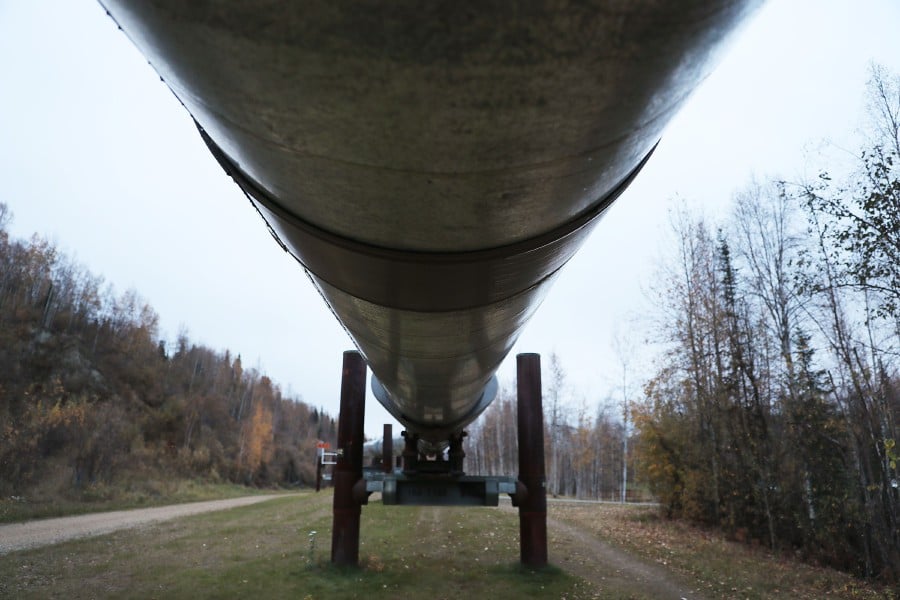
China’s Evolving Reaction to Niger’s 2023 Crisis
Bazoum and his predecessors—Mahamadou Issoufou, Salou Djibo, and Mamadou Tandja—all maintained close relationships with China. Thus, in the immediate aftermath of Bazoum’s ouster, Chinese officials joined their counterparts in western governments, the African Union (AU), and the Economic Community of West African States (ECOWAS) in calling for a restoration of Niger’s constitutional order and dialogue among Niger’s key stakeholders, while also demanding that Bazoum and his family members be protected.
READ: Niger Coup Deepens Africa’s Instability
Yet, in response to developments on the ground in Niger since the July 26 coup, Beijing has made huge adjustments to its positions. Once China realized that the coup is likely irreversible and that the military junta essentially consolidated its grip on Niger, Beijing started to support the new authorities in Niamey. “When we saw ECOWAS and the AU backing down, these were events that China watched very closely and [Beijing’s] language began to change,” Nantulya told Maghrebi. China’s message to the junta has been that Beijing remains focused on projects in Niger deemed important by the men in uniform who now rule the Sahelian country.
“There’s been a 360-degree shift from protecting Bazoum and demanding that all stakeholders in the country…come together to restore constitutional order, which is very unusual for China to make that kind of call, to essentially aligning Chinese policy with the current military junta in place,” added Nantulya. This means that Chinese officials have engaged in serious backchannel negotiations with the Nigerien military authorities to ensure that China’s projects in oil and other sectors, Chinese personnel, and Beijing’s other interests will be safeguarded in post-coup Niger.
In line with China’s “non-interference” foreign policy doctrine, Beijing, unlike western capitals, will not have issues supporting a government that came to power through a military coup. China can be expected to work with any government in Niamey that can hold power and provide the stability necessary for safeguarding China’s interests. Moreover, the Chinese government is being pragmatic about the post-coup crisis and will potentially take advantage of opportunities to forge closer ties with an anti-French Nigerien government at the expense of western influence in the African nation. Just as China shielded Niger from western sanctions and pressure in the past, it could potentially do so again in the present period, possibly leading to a deeper Beijing-Niamey relationship.
Wagner Group
Looking ahead, an important question to ask pertains to how China will view Wagner Group’s role in the Sahel and possibly in Niger. Following Bazoum’s ouster, the putschists called for the Wagner Group’s assistance, suggesting that Niger would follow in the footsteps of the Central African Republic, Mali, and some other African countries that have already turned to the Russian mercenary force. In doing so, these countries have sent a powerful message to the West (namely France) that they will confidently assert their sovereign rights to work with any external actor that they decide.
It is difficult to gauge Beijing’s assessments of Wagner Group activities in this part of Africa and what the force’s presence means for Chinese interests. There is no consensus among experts as to how Beijing looks at the Wagner Group and its presence in Niger and throughout the wider region. However, China’s view likely hinges on whether the Wagner Group could provide the type of stability in the Sahel sought by Beijing. “In the short term a Wagner model like could promote limited stability or better ‘armed stability,’ nevertheless China’s BRI cannot prosper in uncertainty,” said Adruino.
Although Chinese state-owned companies could possibly employ Wagner for security, at this point there is no way to know whether that will occur because Beijing currently has no official position. “It’s something to watch because the [Chinese] state-owned enterprises are the ones that control security budgets and they are the ones which hire Chinese security firms and other security firms,” Nantulya told Maghrebi. “Who knows? They may hire Wagner to be able to protect them in the Sahel. The Central African Republic was an eye opener.”
~~~~~~~~~~~~~
Emily Milliken is a Middle East analyst specializing in Yemen, Libya, and Gulf interests. She currently serves as the Senior Vice President and Lead Analyst at Askari Associates, LLC. You can find her published work in both American and international news media including: Al Jazeera, The Hill, The National Interest, Newsweek, Defense One, Al Monitor, The New Arab, and Arab News, among others.
Giorgio Cafiero is the CEO and founder of Gulf State Analytics, a geopolitical risk consultancy based in Washington, DC. He is also an Adjunct Assistant Professor at Georgetown University, and an Adjunct Fellow at the American Security Project.
Want to chase the pulse of North Africa?
Subscribe to receive our FREE weekly PDF magazine




